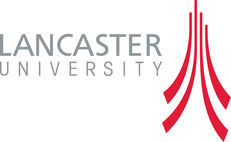Using Lancaster’s best free resource - Lancaster University wind turbine
The implementation of the Lancaster University wind turbine project was difficult and controversial, but successfully completed in 2012.
The project was initially conceived following a study of conventional and renewable energy sources in 2007 to support the planned development of the campus up to 2020. Concurrently, the Carbon Management Plan was developed within which wind turbines formed a major carbon reduction project. Following feasibility assessments and securing HEFCE funding in 2009, the wind turbine successfully completed the challenging planning process in 2011.
The 2.3Mw turbine has been in operation for 18 months and generated 7,210MWh to date or 4,534MWh in 2013, which is 13% of Lancaster University’s electricity consumption. The carbon savings for 2013 were 2,019tCO2e. Total Scope 1/2 carbon emissions have fallen by 5% for the last two years to 22,453t in 2013 from a peak of 26,050 in 2008. Over its 20 year lifetime, the turbine has anticipated carbon savings of 40,000tCO2e.
Top 3 learnings
1 The importance of long term commitment to the project within Facilities and HE/FE senior management
2 The need to maximise formal support for the project from HE/FE institution members, local community and local authority
3 Obtaining planning permission will be the greatest challenge.
What the judges say ...
The project achieved a very significant carbon reduction, visibly positioning the University as a champion of alternative energy use. It involved staff, students and the local community and combine many features that are replicable elsewhere.
What it means to win ...
“This award recognises the efforts we have put into carbon reduction projects and the implementation of our carbon management plan. It is also an excellent symbol of our commitment to sustainability.”
Professor Mark E. Smith, Vice-Chancellor
Videos









 Except where otherwise stated, content on this site is
licensed under a Creative Commons Attribution 3.0 License.
Except where otherwise stated, content on this site is
licensed under a Creative Commons Attribution 3.0 License.
